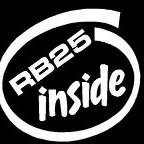Announcements
-
Similar Content
-
Latest Posts
-
By iain_ST44GA · Posted
Slapped a HDi front mount on the M35 last week. -
So it looks like if you buy the set from Z1, they will make sure the joint matches the arm taper....they often upgrade things throughout a series when they have warranty issues
-
By iain_ST44GA · Posted
For those who might be interested, the below is the wiring to the pump hat on the M35. -
By iain_ST44GA · Posted
All good mate, the info helped me a lot Once I got the pump out of the tank, it was clear why it shit itself. The pump assembly and tank were full of mud and rust. Yukk! 🤮 It took f&%king hours to clean everything up properly!
-






.thumb.jpg.1b7f9b555236b5ea56c3fed20c733de8.jpg)
Recommended Posts
Create an account or sign in to comment
You need to be a member in order to leave a comment
Create an account
Sign up for a new account in our community. It's easy!
Register a new accountSign in
Already have an account? Sign in here.
Sign In Now